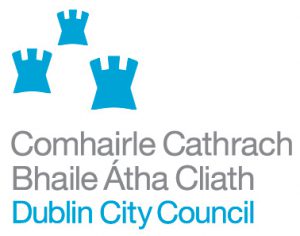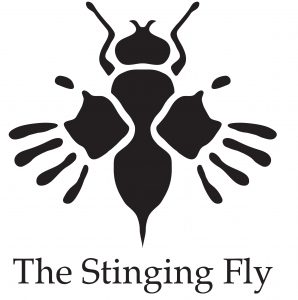
18 September, 2024
“It’s the beating heart of your novel”: Tips for writing a winning synopsis
September is upon us, which can only mean one thing: the 2025 Irish Writers Centre Novel Fair is now well and truly underway. Each year, our Novel Fair competition awards 12 winners the opportunity to pitch their novel to leading publishers and agents. With the 30 September submission deadline fast approaching, writers everywhere are busy sharpening their manuscripts, shortening their word counts, and – perhaps most importantly – getting that all-important 300-word novel synopsis ready for submission.
As every Novel Fair-hopeful will know, writing a synopsis can be a tricky business. What should I focus on? Should I give away my ending? Where do I begin? To help with this, we’ve reached out to a handful of past Novel Fair judges and/or attendees to shed some light on what qualities they believe make for a winning synopsis.
Remember: there’s no one way to write a synopsis, and in preparing your own, it’s worth thinking about your novel’s needs. If it is particularly plot-driven, you may decide to focus on outlining the twists and turns ahead. If it is more concerned with mood and atmosphere, this too should come across in your summary. One successful approach comes from 2019 winner Sue Divin, who recommends asking a question to which your novel provides an answer. Whatever your approach, make sure your synopsis is catered towards the specific concerns of your novel.
Tips for writing a winning synopsis
Sharmilla Beezmohun
Publisher and 2024 Novel fair judge
A useful way of tackling your 300-word summary may be to first think of the blurb that you’d like to go on the back of your book and to write that – probably no more than 100 words. Then think of what else you’d like to tell people that would help to intrigue or interest them – it could be a little more about some characters or the time frame, about locations or a bit more about the plot. Use your remaining words to do that.
Brian Langan
Agent, editor and multiple Novel Fair attendee
Most writers love writing, but most writers hate writing a synopsis of their work. This is partly because it can be difficult to decide what to leave in and what to leave out. My own advice would be to ask yourself a few questions: Who are the significant characters in this novel? What type of world do they live in? How are these characters changed by the events that happen and by their relationships with each other? What is this story really about? And how do I communicate this effectively and succinctly to a reader who knows nothing about the novel?
Writing a synopsis in itself can also provide clarity for the writer and help to sharpen the focus of the novel at the stages of rewriting and editing, because they may come to realise that certain scenes, plot developments or even characters are superfluous, or have not been given enough purpose in the story. Maybe a character needs to go, or maybe they need to grow, and a synopsis can help to make this clear.
Finally, writing a synopsis is excellent practice for learning to talk about your work. If you’ve spent months and years writing your novel but never spoken about it in detail in public, this is a great first step in learning how to do so. Ultimately, agents and publishers are looking not just for great writing, but great writers who can talk about their own work with confidence and clarity.
Alan McMonagle
Novelist and 2023 Novel Fair judge
Keep it to one page. Title and three paragraphs.
Paragraph one: Who is in it. Where and when is it set. What is your main character doing and why (let us know what is at stake).
Paragraph two: If your main character wants something, outline how they are going to get it. If something is wrong, outline how it is proposed to be fixed. Include likely obstacles.
Paragraph three: Let us know what your character discovers. This may point to what your book is about. Set this down.
Be concise.
Be more concise.
Eoin McHugh
Publisher and 2024 Novel Fair judge
In composing a summary, it’s useful to remember that as well as providing a general outline of the story, the summary itself is a form of story (about the novel) and should pique the reader’s interest. I would suggest that the summary should fulfil the practical task of conveying the key points about the novel but that it does so in a way that entertains or intrigues. A well-crafted summary can create a very favourable first impression.
Susan Tomaselli
Writer, editor and 2024 Novel Fair judge
There’s an internet meme that raises its head every couple of years, a listing that was written for a movie to be screened on a TV channel, and it goes like this: ‘Transported to a surreal landscape, a young girl kills the first person she meets and then teams up with three strangers to kill again.’ Summing up, you could say it is an accurate description of The Wizard of Oz. But it’s misleading. When we were launching Novel Fair 2025, I suggested that you 1/ work on your sentences, 2/ be confident in your voice and, perhaps most of all, 3/ have a banging synopsis. What do I mean by that? As I said, when a judge is each going through 120 manuscripts (and multiply that by 3 judges, or in our last year’s case 4 judges), it’s really handy to have a vibrant and honest and engaging synopsis in your back pocket that we can refer to during the process and go, ‘Oh, that one.’ Synopsis, from the Greek ‘seeing together’; yours should be a clear summation of your manuscript. Not a scene-by-scene description exactly, but something that invokes the texture/atmosphere/direction (and maybe outcome) of what you see your novel to be. It is your elevator pitch, your chance to convince the judges (and then an agent or publisher) that this is something they want to put forward. Of course the text of your manuscript matters, but don’t neglect to work on your synopsis; it’s the shorthand, and the key, and the beating heart of your novel.
How can I enter Novel Fair 2025?
Submit your manuscript to Novel Fair for the chance to pitch your novel to leading publishers and literary agents. This annual competition has been a career-changing opportunity for writers across the island of Ireland and worldwide.
- The submission period runs from 1st – 30th September 2024.
- Entry fee for applications is €55. (Members of the Irish Writers Centre can enter for a discounted fee of €45)
- This competition only accepts manuscripts for novels. Memoirs, short stories and works of non-fiction will not be considered.
- There is no limitation on genre, or target market, for the novel. The only requirement being that the writer has not published a novel before i.e. has not previously published a novel with an ISBN (see Terms & Conditions for exceptions and more detailed information on eligibility)
- Applicants are required to send a project synopsis of max. 300 words (+/- 10%) and up to 10,000 words of their novel (+/-10%).
- You will be asked to submit your manuscript online via Submittable.
Find out more about the Irish Writers Centre Novel Fair here.
























